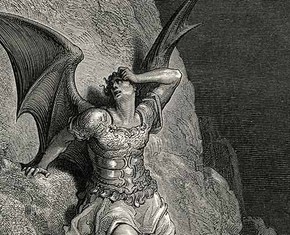The views expressed in our content reflect individual perspectives and do not represent the authoritative views of the Baha'i Faith.
Him that overcomes will I make a pillar in the temple of my God, and he shall go no more out: and I will write upon him the name of my God, and the name of the city of my God, which is new Jerusalem, which comes down out of heaven from my God: and I will write upon him my new name. – Revelation 3:12.
This Biblical passage provides a major piece of the divine puzzle for me. In several passages, Jesus speaks of future prophets or advocates—the Greek word is paraclete—or speaks of his own return to sit on his “glorious throne.” In the passage above from the Book of Revelation, the Christ Spirit speaks of his return with a new name. It is a passage I have never heard a theologian explain adequately. I think, in part, this is because taking it at face value—that the Spirit of Christ says he will return with a name other than ’Jesus’—poses a stark contradiction with the church doctrine of exclusivity.
A number of key passages in the Gospels have convinced me that Jesus never meant for his manifestation 2,000 years ago to be taken as the only one for all time. I’ve already shared some of those passages in earlier essays, but Matthew 7 is one of my favorites. The entire chapter makes a profound statement about the nature of God, but I refer especially to the famous passages in which Christ reveals the nature of God as parent:
Ask, and it will be given to you; seek, and you will find; knock, and it will be opened to you. For everyone who asks receives, and he who seeks finds, and to him who knocks it will be opened. Or what man is there among you who, if his son asks for bread, will give him a stone? Or if he asks for a fish, will he give him a serpent? If you then, being evil, know how to give good gifts to your children, how much more will your Father who is in heaven give good things to those who ask Him! – Matthew 7:7-10.
Given the nature of God as revealed in Christ’s words—the God who gives to His children according to their needs—how reasonable is it to believe that His revelation to us ended 2,000 years ago?
 Right after this passage, Christ enunciates the Golden Rule, remarks on how difficult it is to practice, then discusses how to tell true prophets from false—by their ”fruits.” If there were to be no true prophets, why would the Lord have felt it necessary to go into detail about how to recognize false ones?
Right after this passage, Christ enunciates the Golden Rule, remarks on how difficult it is to practice, then discusses how to tell true prophets from false—by their ”fruits.” If there were to be no true prophets, why would the Lord have felt it necessary to go into detail about how to recognize false ones?
Christianity has splintered into thousands of sects, each believing it has the truth (some exclusively so), each struggling to answer questions about things Christ never addressed because they didn’t exist back then—things he told his disciples they could not bear, but that would be revealed by a future advocate. Two thousand and some years have passed since the advent of Jesus Christ. Can we believe that our God has remained silent since then, though we have continually sought His guidance?
Christ illustrates the nature of God by asking us to consider our own behavior toward the children we love. Let’s imagine that you have several children. Would you feed, clothe, speak to, educate and love only one of those children and let the others go hungry, naked, ignorant and unloved? Would you give them only scraps from your eldest child’s table? I think we can all agree that a human parent who did that would be negligent, or abusive, or worse. Christ asks, in essence, if we who are merely human would not do this, can we imagine our heavenly Father would?
Would a human parent speak to his children once when they were ten years old, then never speak to them or offer any further guidance until they were on their death bed? Can we imagine that our heavenly Father would?
Jesus directly alludes to the ongoing nature of God’s revelation to man in John 10:14-16:
I am the good shepherd. I know My sheep and my sheep know Me—just as the Father knows Me and I know the Father—and I lay down my life for the sheep. I have other sheep that are not of this fold. I must bring them also. They will listen to My voice, and there shall be one fold and one shepherd.
For me, that scriptural passage was the last straw, the one that brought me to the belief that Baha’u’llah—with his message of unity—was the Shepherd Jesus spoke of, that his was the same voice I heard when Christ spoke, and that his was the new name alluded to in the Revelation of St. John.
Peter says that God has spoken to mankind “since the world began.” Can we really imagine that the God Jesus revealed would fall silent until that world ended?
You May Also Like
Comments

















Your last sentence, is Peter the same in the Epistle of Peter?
He follows this with an affirmation that Jesus Christ was the Prophet like Moses foretold ...in the Torah (Deuteronomy 18:15-18)
I spent my childhood attempting to understand church doctrines that seemed out of keeping with what Christ, Himself, asked us to observe. Then, when I was 19, I heard the Voice of the Shepherd from the writings of Bahá'u'lláh and knew my questions and prayers had been answered.